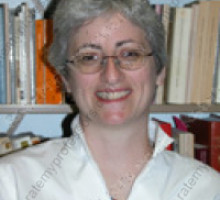
Reviews
The virtues of this study are too many to recite here. Francus's work is a pleasure to read; it is thoroughly researched and very carefully planned... Monstrous Motherhood is a significant study with a great deal to add to our understanding of the representation of mothers in the literature and culture of the long eighteenth century.
In short, Francus' book is an important insight into a complex topic. It uncovers fascinating material drawn from both historical and literary sources, delivering an invaluable and compelling study.
One doesn’t need to be an expert on eighteenth-century literature to appreciate the extent of Marilyn Francus’s study.
With her deft interweaving of the literary and historical and expansive overview of a broad number of complex texts, Marilyn Francus develops, through her nuanced readings, our understanding of imperatives and anxieties surrounding the domestic ideal in eighteenth-century Britain. Her book is an invaluable addition to women's studies as well as literature and culture of the eighteenth century.
Francus complicates discourses on domesticity prevalent in literary and historical contexts by analyzing texts in various genres written by both male and female authors. In so doing, she rightly asks us to rethink what critics and theorists have called "domestic ideology."
Francus's readings employ a broadly psychoanalytical hermeneutic, with much interesting textual, contextual, and critical matter.
Marilyn Francus's Monstrous Motherhood is a meticulously researched and comprehensive study that will change the way our field discusses domesticity and is essential reading for scholars of literature, women's studies, and cultural studies.
In Monstrous Motherhood, Marilyn Francus offers a provocative examination of 18th-century domestic ideology... In the way of groundbreaking studies, Monstrous Motherhood is replete with intriguing opportunities for future work.
Marilyn Francus's Monstrous Motherhood is a wide-reaching, deeply researched and vitally important look at the construction of motherhood.
This book is an excellent study of how the public in the eighteenth century thought about and imagined motherhood. It is a canny and innovative intervention in some of the most important scholarly debates over this period and should reshape the ways in which domestic ideology and the feminine subject are theorized and historicized in the field of eighteenth-century studies.
Book Details
Acknowledgments
Introduction: The Ideology of Domesticity Reexamined
1. Mothers of the Apocalypse: Maternal Allegory and Myth in Swift and Pope
2. All Too Human: Maternal Monstrosity and Hester Thrale
3
Acknowledgments
Introduction: The Ideology of Domesticity Reexamined
1. Mothers of the Apocalypse: Maternal Allegory and Myth in Swift and Pope
2. All Too Human: Maternal Monstrosity and Hester Thrale
3. Suffer the Little Children? The Infanticidal Motherin Literature
4. Until Proven Innocent: Infanticide in the Public Record and in Court
5. Be Monstrous or Be Marginal: Stepmothers in Literature
6. Pin the Tale on the Stepmother: Elizabeth Allen and the Burneys
7. But She's Not There: The Rise of theSpectral Mother
Notes
Bibliography
Index






